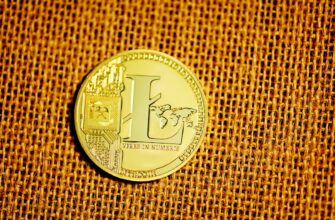- What Is the NYDFS and Why Does It Matter for XRP?
- How NYDFS Regulations Impact XRP and Crypto Businesses
- The Role of the BitLicense in XRP Transactions
- Benefits of NYDFS Compliance for the XRP Ecosystem
- Challenges and Controversies Surrounding XRP and NYDFS
- XRP and NYDFS: Frequently Asked Questions (FAQs)
- 1. What Does NYDFS Approval Mean for XRP?
- 2. How Does NYDFS Differ from the SEC?
- 3. Can NYDFS Approval Boost XRP’s Price?
- 4. How Can Businesses Check if an XRP Provider Is NYDFS-Compliant?
- 5. What Are the Risks of Non-Compliance?
What Is the NYDFS and Why Does It Matter for XRP?
The New York Department of Financial Services (NYDFS) is a key regulator overseeing financial services and products in New York, including cryptocurrencies like XRP. Established in 2011, the NYDFS enforces strict guidelines to protect consumers and ensure market integrity. For XRP, this means businesses facilitating its use or exchange in New York must comply with NYDFS regulations, such as the BitLicense framework.
How NYDFS Regulations Impact XRP and Crypto Businesses
The NYDFS directly influences how XRP is traded, stored, and managed in New York. Key impacts include:
- Licensing Requirements: Firms handling XRP must obtain a BitLicense or charter, ensuring they meet anti-money laundering (AML) and cybersecurity standards.
- Consumer Protections: NYDFS mandates transparency in fees, risks, and custody practices for XRP transactions.
- Market Access: Compliance allows businesses to operate legally in New York, a major financial hub.
The Role of the BitLicense in XRP Transactions
Introduced in 2015, the BitLicense is a mandatory requirement for crypto businesses operating in New York. For XRP-focused companies, this involves:
- Submitting detailed business plans and compliance procedures.
- Implementing robust AML and Know Your Customer (KYC) protocols.
- Undergoing regular audits and reporting to the NYDFS.
Notable platforms like Bitstamp and Coinbase have secured BitLicenses, enabling them to offer XRP trading in the state.
Benefits of NYDFS Compliance for the XRP Ecosystem
Adhering to NYDFS standards offers several advantages:
- Enhanced Trust: Compliance signals legitimacy, attracting institutional investors.
- Broader Market Reach: Access to New York’s vast financial ecosystem.
- Risk Mitigation: Strong safeguards reduce fraud and operational risks.
Challenges and Controversies Surrounding XRP and NYDFS
Despite its benefits, NYDFS compliance poses hurdles:
- High Costs: Obtaining a BitLicense can cost over $100,000, deterring smaller firms.
- Regulatory Overlap: XRP faces ongoing SEC litigation, complicating compliance efforts.
- Market Uncertainty: Evolving regulations may require frequent operational adjustments.
XRP and NYDFS: Frequently Asked Questions (FAQs)
1. What Does NYDFS Approval Mean for XRP?
NYDFS doesn’t approve XRP itself but licenses businesses handling it. Compliance ensures these companies meet New York’s regulatory standards.
2. How Does NYDFS Differ from the SEC?
The SEC regulates securities at the federal level, while NYDFS focuses on state-level financial services. XRP’s classification as a security (disputed in court) impacts which rules apply.
3. Can NYDFS Approval Boost XRP’s Price?
Indirectly, yes. Regulatory clarity may increase investor confidence, though prices also depend on market trends and legal outcomes.
4. How Can Businesses Check if an XRP Provider Is NYDFS-Compliant?
Visit the NYDFS website for a list of licensed entities. Always verify before transacting.
5. What Are the Risks of Non-Compliance?
Fines, operational shutdowns, and reputational damage. The NYDFS has penalized firms like Coinfinex for unlicensed activities.
Conclusion: Navigating NYDFS regulations is critical for XRP’s growth in New York. While compliance demands resources, it fosters trust and accessibility in a competitive market. Stay informed to avoid pitfalls and leverage opportunities.







